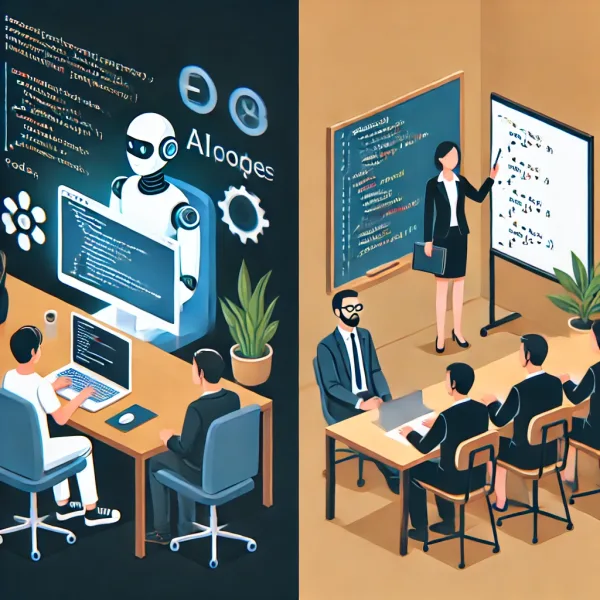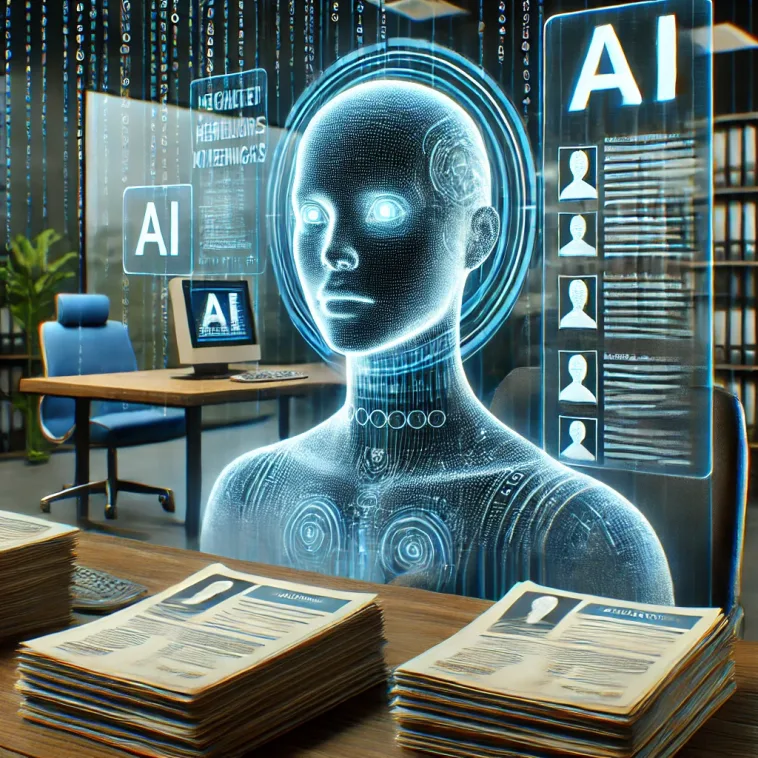Welcome to the brave new world of job hunting, where your first “interview” isn’t with a person but with an algorithm. If you haven’t updated your job search strategy since the days of “objective statements” on resumes, buckle up—because AI is reshaping the entire process. Let’s talk about what’s changed, how to adapt, and why your ability to work with AI might just be your greatest asset.
How AI Changed the Hiring Game
Gone are the days when human resources meticulously sifted through each resume, sipping coffee and highlighting accomplishments. Today, your resume is more likely to face an Applicant Tracking System (ATS) before it reaches human eyes. These systems are powered by AI, designed to:
- Scan for keywords that match the job description.
- Summarize your resume into bite-sized insights.
- Auto-sort candidates into “call back” or “not a fit” piles.
This means the traditional approach to resume writing is as outdated as floppy disks. If you’re not crafting an AI-friendly, keyword-rich resume, you’re effectively ghosting the hiring manager before they even know you exist.
What Makes a Resume AI-Friendly?
- Keywords Matter: Use exact phrases from the job description. If the listing says “JavaScript frameworks,” don’t just write “React and Vue.” Be explicit.
- Keep It Simple: ATS systems often struggle with fancy formatting. Stick to clean, easy-to-parse designs.
- Show Metrics: Instead of “Managed a team,” write “Managed a team of 8 developers, increasing project delivery speed by 20%.”
Pro tip: Test your resume by running it through an online ATS checker. If it doesn’t score well, neither will you.
Programming Interviews in the AI Era

For developers, the evolution of AI in hiring has created a fork in the road. Companies are splitting into two camps: AI-Friendly and Anti-AI/Programming Purist companies.
The AI-Friendly Camp
These companies understand that AI has revolutionized how programming teams work. They care less about whether you can recite the syntax for an obscure JavaScript function and more about:
- Problem-solving skills: Can you think critically?
- AI literacy: Can you identify when AI-generated code is incorrect, inefficient, or just plain bad?
- Experience over memorization: Senior developers are in high demand because they know how to vet AI outputs quickly and confidently.
For example, say you’re asked to add an admin page to a legacy frontend built with CommonJS modules. An AI might spit out a solution using React, even though it’s incompatible with the existing codebase. A senior developer would spot the mismatch immediately and either:
- Adapt the AI’s code to fit CommonJS.
- Provide explicit instructions to the AI, having it rewrite the code in CommonJS for compatibility.
Junior devs, by contrast, might take the AI’s code at face value and waste hours debugging a solution doomed from the start. This is why senior-level hires are the safer bet in AI-friendly environments.
The Anti-AI/Programming Purist Camp
On the other side of the spectrum, some companies are doubling down on traditional methods. Think:
- Whiteboard coding sessions: Live problem-solving on a whiteboard.
- Laptop tests: Writing code from scratch on a locked-down machine.
- Syntax quizzes: Expect questions on algorithms, data structures, and obscure edge cases.
These companies prioritize hiring developers who can produce results without relying on AI. While this might favor junior developers who’ve recently graduated and are fresh on the fundamentals, the trend is clear: even purist companies are increasingly chasing senior-level talent.
The Future: AI-Friendly Wins
Let’s face it: efficiency wins. AI-friendly companies can do in minutes what anti-AI companies might take hours to accomplish. As AI continues to improve, the gap between these two hiring philosophies will widen. Mistakes made by today’s AI tools are far less common than they were when ChatGPT 3.5 first launched—and they’ll only get rarer.
Eventually, almost every company (government roles aside) will embrace AI to some degree, simply because they can’t afford not to. Whether you’re a developer or job-seeker in another field, the takeaway is clear:
Learn to work with AI.
Bottom Line
Your ability to collaborate with AI will define your success in the job market of tomorrow. That means:
- Understanding its limitations.
- Spotting when it’s wrong.
- Adapting its outputs to meet the unique demands of your role.
So, start experimenting with tools like ChatGPT, GitHub Copilot, Windsurf or whatever’s next on the horizon. The more fluent you become in AI-assisted workflows, the more valuable you’ll be to any company—AI-friendly or otherwise.
Ready to future-proof your career? Start optimizing your resume and brushing up on AI collaboration skills today. The job market’s changing fast—and the best time to adapt is now.



